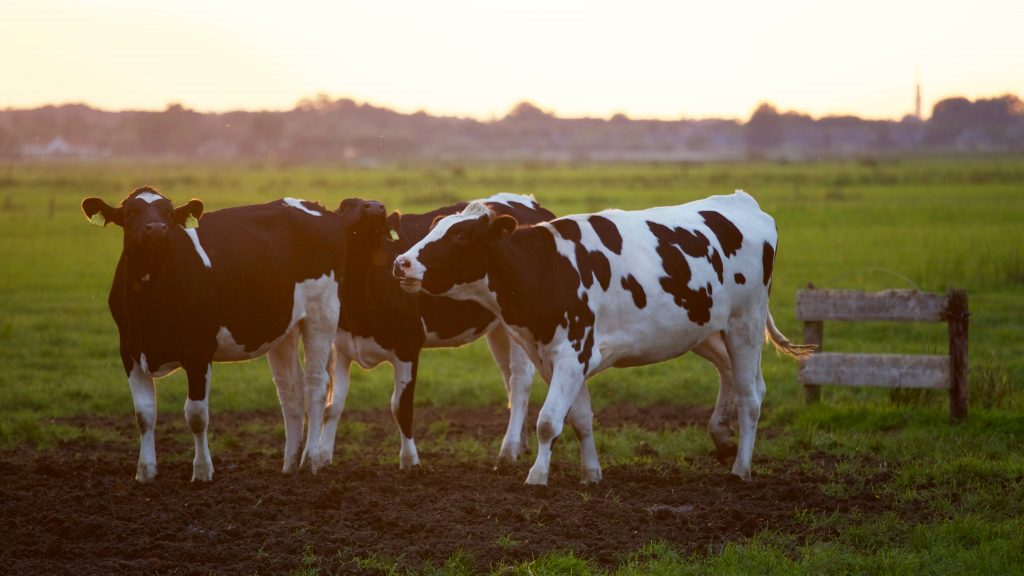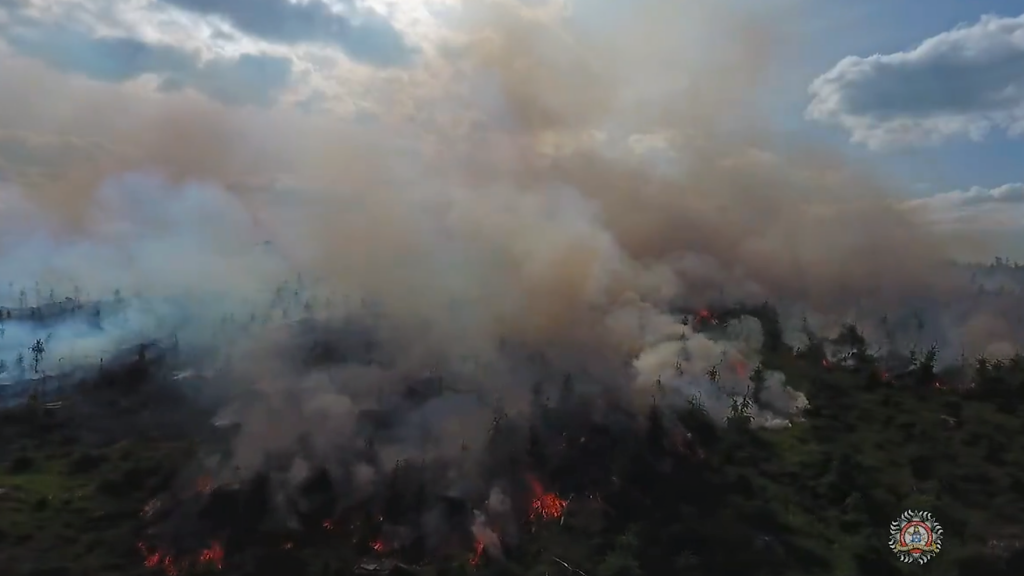Continued heatwave brings fresh misery to both farmland and biodiversity

July 3rd, 2018
Ireland’s warmest summer since the mid-seventies has brought the average citizen out to enjoy the pleasures of the unexpectedly high temperatures.
However, the warm weather and lack of rain are proving a big problem for some, bringing financial hardship upon the farming community and devastation for upland biodiversity through gorse fires.
The “once in a generation weather event” is posing “really difficult challenges” for some farmers, according to the President of the Irish Farmers’ Association (IFA), Joe Healy.
Mr Healy said that the real difficulties land at the doorstep of farmers who rely on rainfall for their grass and crop growth, in other words, the vast majority of Irish farmers.
For livestock farmers, the dry weather and soil moisture are impacting grass growths rates, leaving many farmers with no choice but to start using their supplies of hay to feed animals now.
Mr Healy said that the biggest worry is how quickly the growth will resume and whether farmers will be able to save enough silage and hay for the upcoming winter.
This comes on the back of the fodder crisis at the start of the year as cattle endured longer stays indoors following a wet winter which also impacted grass and crop growth.
Grain growers are facing an equally difficult situation as winter crops, already stressed due to the major snowfall earlier this year, have been impacted by excessive heat and drought conditions. Many winter crops are now expected to be harvested three weeks early.
A winter crop of barley that will be cut this week, was the harvest ever as early? pic.twitter.com/E2iYGyCDv9
— Irish Grain Growers (@GrowersGrain) July 2, 2018
Spring crops planted eight weeks ago have not seen any rain yet, and the negative impact on yields is leaving crop and vegetable growers in a potential income crisis.
The lack of rainfall is stressing water supplies as the daily demand reached 615 megalitres in the past week. The safe and sustainable amount that Irish Water can produce daily is 610 million litres, which means the water has to be taken from treated water storage.
While the average citizen will feel the impact of Irish Water’s hosepipe ban, dairy farmers are facing a far bigger threat as their need for water supplies are huge.
The average dairy cow needs a minimum of 120 litres of water a day, and if such water supply is not available the animal gets distressed.

Cattle Photo: Matthias Zomer/ Pexels
“The worry levels are going up as quickly as the thermometer levels,” said Pat McCormack, the President of the Irish Creamery Milk Suppliers Association (ICMSA). “Animals welfare is an obligation that farmers take very, very seriously,” added Mr McCormack.
According to the Association, water shortages are most pressing in the south-east, especially in counties Kilkenny, Wicklow and Laois.
Irish Water released a statement this week indicating that farmers impacted by reduced water supply will receive the water needed for animals and other needs on the farm.
Worryingly, this “once in a generation” weather event may become the norm before the century is out as climate change predictions for Ireland point to more frequent wet winters and drier, drought threatened summers.
The World Meteorological Organization (WMO) recently found that last year was the second hottest year in the record, with 2016 beating it to the number one spot.
A report from the European Academies Science Advisory Council (EASAC) also found that extreme weather had become more frequent and more costly over the past four decades.
Extreme temperatures, droughts and forest fires have doubled since 1980, the report states, a foreboding statistic for Ireland’s upland biodiversity increasingly under threat from fires.

Drone eye view of fire in Saggart last week. Firefighters from Tallaght, Rathfarnham and HQ attended the scene Photo: Dublin Fire Brigade
Gorse fire threat to biodiversity
An extreme fire risk warning has been in place across the country since last week as high temperatures and drought conditions influence a glut of gorse fires across the country.
In Cork alone, the fire service dealt with gorse and grass fires in almost twenty locations last week, including Kinsale, Cobh and Bantry.
Gorse fires are a safety risk to people, but they are also hugely devastating for our biodiversity and habitats, with the main casualties often birds’ nests, eggs and chicks.
Although adult birds can often get away from the flames and thick smoke, they might not breed again during the season and usually lose their nesting territory.
During an outbreak of gorse fires last year, the habitats of endangered species such as the Curlew, Golden Eagle, and Hen Harrier were damaged across the island.
The Wicklow Mountains have been hit hard over the past week, with Wicklow County Council Chief Fire Officer, Aidan Dempsey, telling The Green News that there are still many areas at high risk.
He said that the Council and Fire Service are working together with the National Parks and Wildlife Service (NPWS) to monitor upland areas for any new fires or fire spread.
Mr Dempsey said that while the cause of the fires is currently unknown, the “current spate would appear to be mainly out of carelessness”.
“We have identified locations where cigarette butt discarded from the vehicle started a fire, a disposable barbeque was responsible for the fire in Lough Bray,” said Mr Dempsey.
“I’m asking the public to be extra vigilant with all possible sources of ignition and to report any illegal or suspicious activity in relation to fires to An Garda Siochana,” Mr Dempsey added.
The Department of Agriculture has also called on the farming community to be “particularly vigilant” in using machinery around hay meadows and to “refrain from the use of fire on cultivated farmland”.
Under extreme Fire Risk Conditions any ignition may give rise to “rapid and unpredictable wildfire development” and have a “devastating impact” on fledgeling birds and young mammals, the Department said.
[x_author title=”About the Author”]







